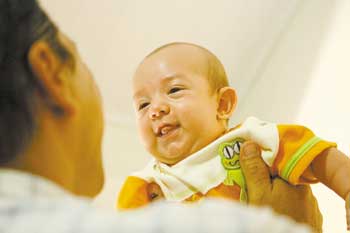Em princípio, o home schooling me soa como um exercício legítimo de liberdade por parte dos pais. Contudo, é inegável que a socialização das crianças perde muito quando elas não têm a oportunidade de freqüentar uma escola. Defendo que a educação serve, entre outras coisas, para expandir os horizontes do educando, fazer com que ele amplie sua visão de mundo, preparando-se então até mesmo para avaliar criticamente suas próprias raízes, se for o caso (pensem em um morador de gueto que se desloca para uma universidade, ou um fundamentalista obrigado a lidar com a pluralidade de opiniões no campus). Como fazer isso em casa, sob supervisão permanente dos pais/tutores? Nesse caso, parece-me realmente uma desculpa para criar manter a mentalidade do gueto.
Pode-se objetar que os valores dos países de origem dessas pessoas são muito diversos dos americanos, e que tal reação conservadora é compreensível. Mas aí volto ao ponto inicial: se são tão diferentes a ponto de serem inaceitáveis, por que foram para lá? Apenas por razões econômicas? Mas então o bem-estar material vale o risco da "honra" e da "dignidade" dos próprios filhos, já que, por mais que se vigie, estes de uma forma ou de outra -- televisão, jornais, vizinhos -- entrarão em contato com um modo de vida diferente do de seus pais?
Não que o estilo de vida ocidental não seja criticável, ele é, e muito. Em muitos lugares, o senso de comunidade é demasiado tênue para ser notado de forma relevante na vida das pessoas. A banalidade sexual também se destaca aos olhos de quem vem de culturas mais tradicionais. Entretanto, há diálogos possíveis, trocas que podem ser saudavelmente realizadas. O simples isolamento impede isso.
Como? E se eu fosse criar uma filha no Paquistão? Bem, eu certamente não me oporia a que ela usasse aqueles véus, se quisesse. Apenas faria questão de mostrar que, se não quisesse, também poderia, sem que ela valesse menos como ser humano por isso. Afinal, se há uma virtude na cultura ocidental de hoje, especialmente no que concerne à condição feminina, é a possibilidade de escolhas. Não é muito realista supor que o mesmo valha em todo o Paquistão.
------
Many Muslims Turn to Home Schooling

Karima Tung, 12, one of three girls home-schooled by their mother, Fawzia Mai Tung. An important part of the school day: reading the Koran.
LODI, Calif. — Like dozens of other Pakistani-American girls here, Hajra Bibi stopped attending the local public school when she reached puberty, and began studying at home.
Her family wanted her to clean and cook for her male relatives, and had also worried that other American children would mock both her Muslim religion and her traditional clothes.
“Some men don’t like it when you wear American clothes — they don’t think it is a good thing for girls,” said Miss Bibi, 17, now studying at the 12th-grade level in this agricultural center some 70 miles east of San Francisco. “You have to be respectable.”
Across the United States, Muslims who find that a public school education clashes with their religious or cultural traditions have turned to home schooling. That choice is intended partly as a way to build a solid Muslim identity away from the prejudices that their children, boys and girls alike, can face in schoolyards. But in some cases, as in Ms. Bibi’s, the intent is also to isolate their adolescent and teenage daughters from the corrupting influences that they see in much of American life.
About 40 percent of the Pakistani and other Southeast Asian girls of high school age who are enrolled in the district here are home-schooled, though broader statistics on the number of Muslim children being home-schooled, and how well they do academically, are elusive. Even estimates on the number of all American children being taught at home swing broadly, from one million to two million.
No matter what the faith, parents who make the choice are often inspired by a belief that public schools are havens for social ills like drugs and that they can do better with their children at home.
“I don’t want the behavior,” said Aya Ismael, a Muslim mother home-schooling four children near San Jose. “Little girls are walking around dressing like hoochies, cursing and swearing and showing disrespect toward their elders. In Islam we believe in respect and dignity and honor.”
Still, the subject of home schooling is a contentious one in various Muslim communities, with opponents arguing that Muslim children are better off staying in the system and, if need be, fighting for their rights.
Robina Asghar, a Muslim who does social work in Stockton, Calif., says the fact that her son was repeatedly branded a “terrorist” in school hallways sharpened his interest in civil rights and inspired a dream to become a lawyer. He now attends a Catholic high school.
“My son had a hard time in school, but every time something happened it was a learning moment for him,” Mrs. Asghar said. “He learned how to cope. A lot of people were discriminated against in this country, but the only thing that brings change is education.”
Many parents, however, would rather their children learn in a less difficult environment, and opt to keep them home.
Hina Khan-Mukhtar decided to tutor her three sons at home and to send them to a small Muslim school cooperative established by some 15 Bay Area families for subjects like Arabic, science and carpentry. She made up her mind after visiting her oldest son’s prospective public school kindergarten, where each pupil had assembled a scrapbook titled “Why I Like Pigs.” Mrs. Khan-Mukhtar read with dismay what the children had written about the delicious taste of pork, barred by Islam. “I remembered at that age how important it was to fit in,” she said.
Many Muslim parents contacted for this article were reluctant to talk, saying Muslim home-schoolers were often portrayed as religious extremists. That view is partly fueled by the fact that Adam Gadahn, an American-born spokesman for Al Qaeda, was home-schooled in rural California.
“There is a tendency to make home-schoolers look like antisocial fanatics who don’t want their kids in the system,” said Nabila Hanson, who argues that most home-schoolers, like herself, make an extra effort to find their children opportunities for sports, music or field trips with other people.
Lodi’s Muslims also attracted unwanted national attention when one local man, Hamid Hayat, was sentenced last year to 24 years in prison on a terrorism conviction that his relatives say was largely due to a fabricated confession. (Had he been more Americanized, they say, he would have known to ask for a lawyer as soon as the F.B.I. appeared.)
Parents who home-school tend to be converts, Mrs. Khan-Mukhtar said. Immigrant parents she has encountered generally oppose the idea, seeing educational opportunities in America as a main reason for coming.
If so, then Fawzia Mai Tung is an exception, a Chinese Muslim immigrant who home-schools three daughters in Phoenix. She spent many sleepless nights worried that her children would not excel on standardized tests, until she discovered how low the scores at the local schools were. Her oldest son, also home-schooled, is now applying to medical school.
In some cases, home-schooling is used primarily as a way to isolate girls like Miss Bibi, the Pakistani-American here in Lodi.
Some 80 percent of the city’s 2,500 Muslims are Pakistani, and many are interrelated villagers who try to recreate the conservative social atmosphere back home. A decade ago many girls were simply shipped back to their villages once they reached adolescence.
“Their families want them to retain their culture and not become Americanized,” said Roberta Wall, the principal of the district-run Independent School, which supervises home schooling in Lodi and where home-schooled students attend weekly hourlong tutorials.
Of more than 90 Pakistani or other Southeast Asian girls of high school age who are enrolled in the Lodi district, 38 are being home-schooled. By contrast, just 7 of the 107 boys are being home-schooled, and usually the reason is that they were falling behind academically.
As soon as they finish their schooling, the girls are married off, often to cousins brought in from their families’ old villages.
The parents “want their girls safe at home and away from evil things like boys, drinking and drugs,” said Kristine Leach, a veteran teacher with the Independent School.
The girls follow the regular high school curriculum, squeezing in study time among housework, cooking, praying and reading the Koran. The teachers at the weekly tutorials occasionally crack jokes of the “what, are your brothers’ arms broken?” variety, but in general they tread lightly, sensing that their students obey family and tradition because they have no alternative.
“I do miss my friends,” Miss Bibi said of fellow students with whom she once attended public school. “We would hang out and do fun things, help each other with our homework.”
But being schooled apart does have its benefit, she added. “We don’t want anyone to point a finger at us,” she said, “to say that we are bad.”
Mrs. Asghar, the Stockton woman who argues against home schooling, takes exception to the idea of removing girls from school to preserve family honor, calling it a barrier to assimilation.
“People who think like this are stuck in a time capsule,” she said. “When kids know more than their parents, the parents lose control. I think that is a fear in all of us.”
Aishah Bashir, now an 18-year-old Independent School student, was sent back to Pakistan when she was 12 and stayed till she was 16. She had no education there.
Asked about home schooling, she said it was the best choice. But she admitted that the choice was not hers and, asked if she would home-school her own daughter, stared mutely at the floor. Finally she said quietly: “When I have a daughter, I want her to learn more than me. I want her to be more educated.”







